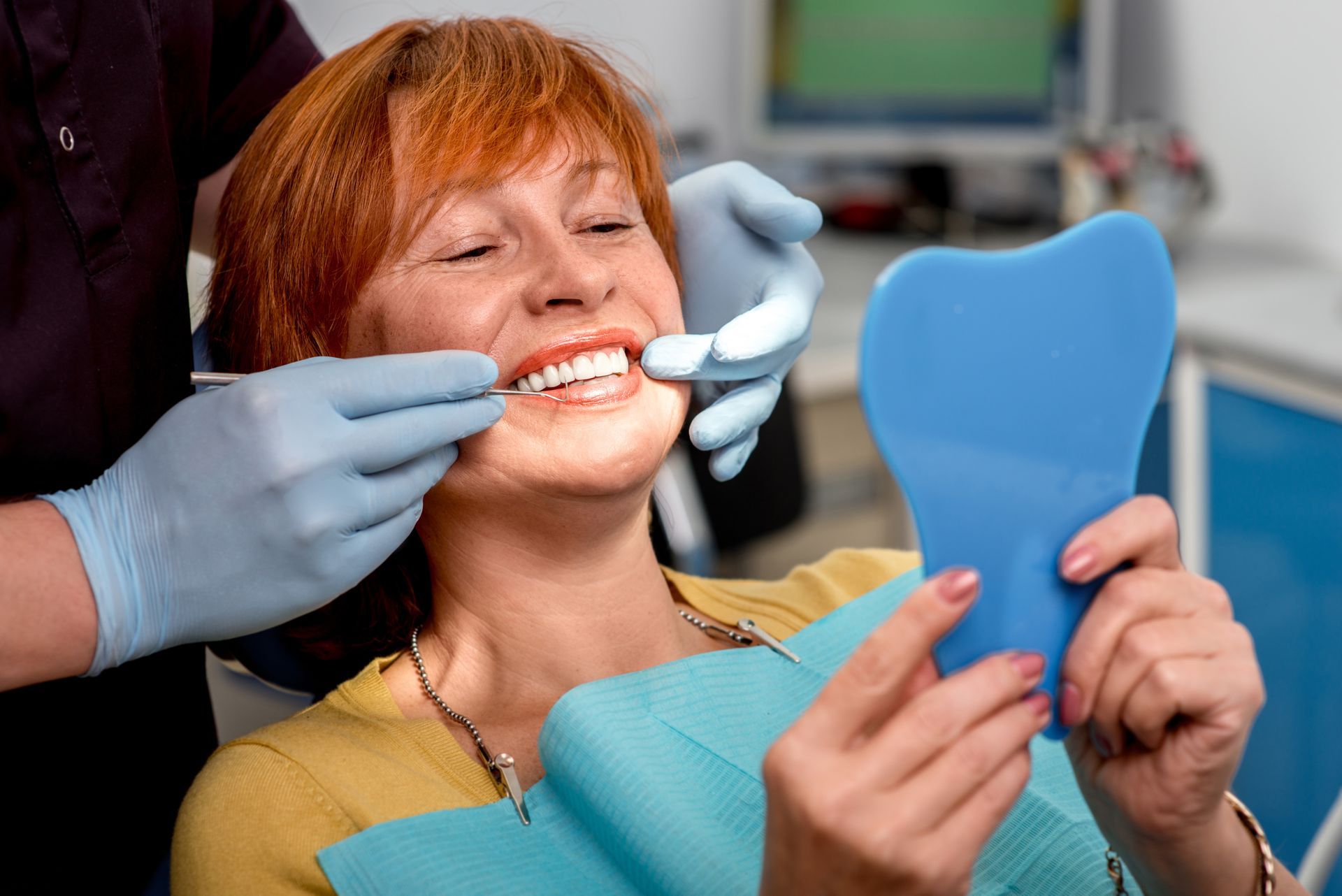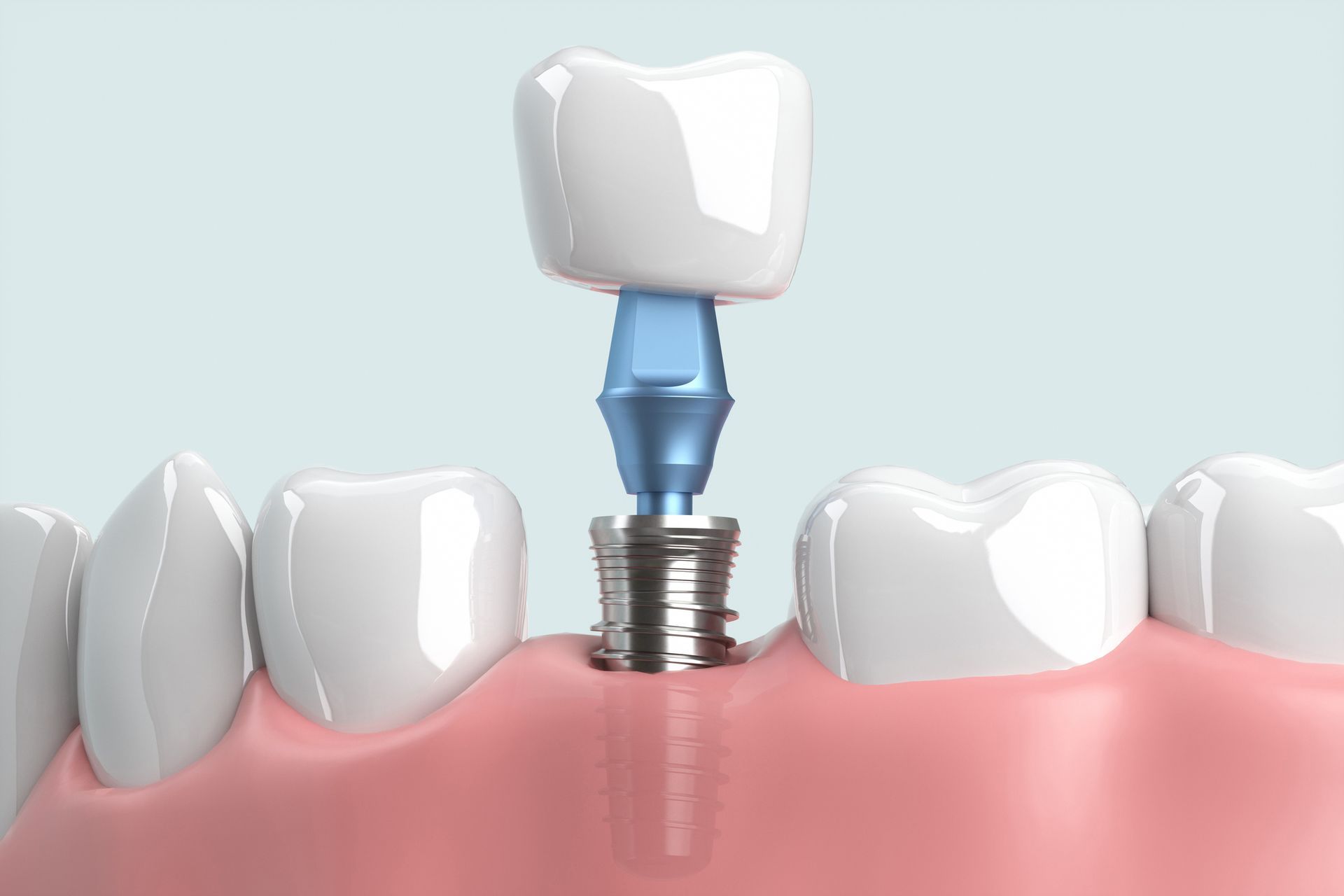THE LINK BETWEEN SLEEP APNEA AND GUM DISEASE
- By Admin
- •
- 30 Apr, 2021

You may have heard that certain habits or certain diseases - like smoking or diabetes - may increase the risk of periodontal disease, but there are many other possible factors that can increase your risk. For example, untreated sleep apnea could be contributing to gum inflammation. Take a look at the link between sleep apnea and gum disease and see how you can address the issue.
How Does Sleep Apnea Relate to Gum Disease?
People with sleep apnea tend to breathe through their mouths rather than their noses. Mouth breathing decreases saliva flow and can cause dry mouth, which in turn can make it easier for oral bacteria to thrive. As bacteria thrive, it's easier for gums to become inflamed and for gingivitis or gum disease to develop.
Other than mouth-breathing, people with sleep apnea also tend to grind their teeth. Teeth grinding, or bruxism can cause teeth to become loose, cracked, or chipped. While the jury is still out on causation, one study did show a link between bruxism and acute periodontitis.
As teeth become more mobile, the surrounding gum tissue can loosen and gum pockets can develop. Bacteria can propagate in enlarged gum pockets and toothbrush bristles may not be able to adequately clean these areas.
What Can You Do to Address Gum Disease?
If you have symptoms like headaches, jaw pain, or day time fatigue, you should visit your doctor to see if you have sleep apnea. If you do have sleep apnea, you should let your dentist know. Here are a few ways your dentist can help you prevent and manage gum issues related to sleep apnea.
Fit You with an Oral Sleep Appliance
While you could get a CPAP device to address your sleep apnea, an oral appliance might be easier to adjust to since it fits similarly to an orthodontic retainer. Plus, the great thing about or a l sleep appliances is that not only they correct your sleep apnea, but they can also protect your teeth from bruxism.
Your dentist can help you find an oral appliance for sleep apnea that fits your needs. Asleep appliance will prevent your air way from collapsing, making it easier for you to breathe through your nose at night, which in turn could improve your gum health.
Provide Periodontal Probing
Besides getting fitted for a sleep appliance, your dentist may recommend periodontal probing to monitor your situation. During your regular cleaning checks, your dentist can use a metal instrument called a periodontal probe to measure gum pockets around your teeth. Generally, pockets that are less than 4 mm aren't a cause for concern.
Having your gums probed regularly is a good way to see if the sleep appliance is working and to see if your gums are healing. If your symptoms of sleep apnea have improved but your gum pockets haven't, then your dentist can look for alternative issues that may be contributing to periodontal disease.
Recommend Laser Periodontal Treatment
If your gum disease is more advanced, your dentist may recommend a deeper cleaning. Laser treatment is a great way to address gum disease because it is less invasive than surgery and requires shorter healing times compared to scaling and root planning. The lasers used during this treatment stimulate stem cells in the gum pockets to form new connective tissues and collagen.
Once your dentist has treated your gum disease, then your dentist can again monitor the situation with regular periodontal probing.
Reach out to Bradley Piotrowski, DDS, MSD, LLC, for more information about laser periodontal treatment and how to correct gum issues related to sleep apnea.













